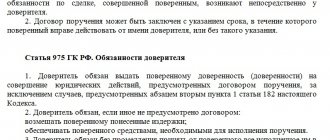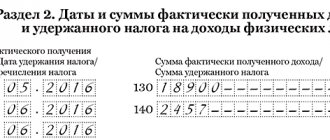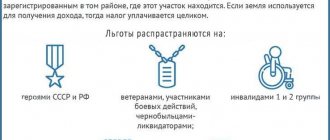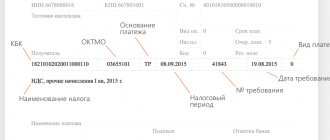Concept
First of all, we note that in tax legislation quite a lot of attention is paid to the characteristics of interdependent persons, the relationships between them, as well as the tax consequences of their transactions. The reason is that it is much easier for interconnected companies, individual entrepreneurs and ordinary individuals to illegally reduce their tax burden or evade taxes altogether through various manipulations.
The legal concept of interdependent persons in tax legislation is contained in paragraph 1 of Article 20 of the Tax Code of the Russian Federation. And so, interdependent persons for tax purposes are individuals and/or companies, the relationship between which may affect:
- conditions of their activities;
- economic results of their activities;
- economic results of the activities of the persons they represent.
More specifically, interdependent persons are recognized if one of the following conditions is present (clause 1 of Article 20 of the Tax Code of the Russian Federation):
- The company directly/or indirectly participates in another company, and the total share of such participation is from 20%. As for the share of indirect participation through a sequence of other organizations, it is calculated as the product of the shares of direct participation of some firms in others.
- A person is subordinate to another person due to the official hierarchy.
- Marriage/kinship relations (by blood and by nature), adoption, guardianship on the basis of the family legislation of the Russian Federation.
Let us note that the listed interdependent persons in tax legal relations have this status a priori. That is, upon compliance with one of these three criteria.
At the same time, on the basis of clause 2 of Art. 20 of the Tax Code of the Russian Federation, interdependent persons are recognized by the court for tax purposes. Moreover, he is not limited to the specified three criteria, but can choose his own basis, not specified in the Tax Code. In practice, this happens when relationships between persons can influence the results of transactions for the sale of goods, works, and services.
EXAMPLE
The Federal Tax Service found, and the court supported, the conclusion that the company and its counterparty are interdependent entities under the Tax Code of the Russian Federation, since their founders are the same people, in whose interests the interaction of both businesses and the establishment of favorable terms of purchase and sale (information letter of the Presidium of the Supreme Arbitration Court RF dated March 17, 2003 No. 71).
The Tax Code of the Russian Federation has another more detailed definition of who interdependent persons are in tax law. According to him, this is when the characteristics of relationships between persons can influence:
- conditions and/or results of transactions between them;
- and/or the economic results of its activities or the persons represented.
Chapter 14.1 of the Tax Code of the Russian Federation consistently and in detail reveals what interdependent persons mean. For example, what kind of influence are we talking about? So, it can occur when:
- participation of one person in the capital of others;
- on the basis of an agreement concluded between the parties;
- when otherwise possible, determine the decisions made by others.
The law especially emphasizes: such influence can be exerted by one person directly and independently, or together with its interdependent companies, individual entrepreneurs, and individuals.
Paragraph 2 of Article 105.1 of the Tax Code of the Russian Federation lists the main (most common) conditions for recognizing persons as interdependent. Among them:
- one company directly and/or indirectly participates in another, and the share is from 25%;
- an individual directly and/or indirectly participates in the organization, and the share is from 25%;
- the same person directly and/or indirectly participates in organizations, and the share in each is from 25%;
- a company and a person (including an individual together with its interdependent persons) can appoint/elect a sole executive body or at least 50% of the collegial executive body, board of directors (supervisory board);
- companies whose sole executive bodies or at least 50% of the collegial executive body, board of directors (supervisory board) are appointed or elected by decision of the same person (individuals together with their interdependent persons);
- companies in which 50% of the collegial executive body or board of directors (supervisory board) are the same individuals together with their interdependent persons;
- legal entity and its sole executive body;
- the powers of the sole executive body in different companies are exercised by the same person;
- companies and/or individuals, if the share of direct participation of each previous person in each subsequent organization is from 50%;
- one person is subordinate to another by position;
- spouse, parents (including adoptive parents), children (adopted), full and half brothers and sisters, guardian (trustee) and ward.
Share
It could be:
- immediate (direct);
- indirect;
- mixed.
In the first case, everything is simple. One enterprise, for example, may have more than 20% of voting shares, 20% of the authorized capital in an LLC.
The second case involves the participation of one enterprise in another legal entity through third parties. The indirect share can be defined as follows:
- Establish the existing sequence of participation of one enterprise in another through the participation of each previous legal entity in each subsequent one in the appropriate sequence.
- Determination for each previous company of direct participation shares in each subsequent one in order.
- Summation of the products of quantities obtained from the previous paragraph.
In the third case, there is indirect and direct participation, giving a total of more than 20%.
Report in 2021
A kind of report on interdependent persons is submitted to the tax authority as part of the Notification of controlled transactions. The form of notification of controlled transactions and the procedure for filling it out are approved by Order of the Federal Tax Service of Russia dated May 7, 2018 N ММВ-7-13/
The interdependence factor is reflected in Section 1A of this form:
Notification of controlled transactions for the past period is submitted only once a year - no later than May 20 of the following year (Clause 2 of Article 105.16 of the Tax Code of the Russian Federation). If May 20 falls on a weekend and (or) a non-working holiday, the period is extended until the next working day (Clause 7, Article 6.1 of the Tax Code of the Russian Federation). Reports for 2021 must be submitted no later than May 20, 2020.
Payments on the profit of any physical entity
The material benefit received from the purchase of products (labor, services) from persons who are related to the taxpayer himself is recognized as a direct material benefit and, in accordance with this, is subject to payment.
In this case, the basis is formed as the excess of the market value of the transaction over the actual selling price of the products.
A letter from the Ministry of Finance of the Russian Federation dated November 27 shows that when a taxpayer purchases living space from a company representing an interconnected entity, the date of receipt of income in the form of material benefits is recognized as the period of state registration of the property rights to the confirmed apartment.
The amount paid from profit in the variant of this type of physical benefit is 13%.
Example: The general manager received living space from the company for 1 million rubles, and the market price for a similar apartment was 5 million rubles. Since the leading director and the institution are interconnected individuals, material benefits in the amount of 4 million rubles are generated. This amount is subject to personal income tax.
If the purchase and sale transaction of a residential building occurs among individuals who are interconnected, in this case, material deductions, pre-established in paragraph 2 of Art. 220 are not used. Dependent figures, for example, include husband (wife), father and mother, child, full and half-brothers and sisters, trustees and wards.
Affiliates: differences
It is important to understand that affiliates and interdependent entities have their differences. Thus, not a word is said about the former in the Tax Code of the Russian Federation. In addition, kinship and family relationships do not affect affiliation in any way, unlike interdependence.
Affiliates are more of a term from corporate law, which plays a big role only within the framework of antitrust law, as well as in the accounting and banking fields.
Who can be recognized as affiliated persons and for what purposes is stated in the RSFSR Law of March 22, 1991 No. 948-1 “On competition and restriction of monopolistic activities in commodity markets.”
Transactions
As a general rule, the price in a transaction is considered to correspond to the market until the contrary is proven (Clause 1, Article 40 of the Tax Code of the Russian Federation). At the same time, transactions between interdependent persons are always under special scrutiny by tax authorities, since the law directly allows for checking the adequacy of prices in transactions between such persons (Clause 2 of Article 40 of the Tax Code of the Russian Federation).
Thus, the main tax risks of transactions between related parties in 2021 lie in the area of their pricing policy. In the event of an inspection, inspectors will compare the established prices with transactions in which:
- the parties do not depend on each other;
- connections do not affect the economic results of the transaction.
Tax debts from price manipulation in transactions between related parties The Tax Code of the Russian Federation allows collection only in court based on the results of an audit by the Federal Tax Service (subclause 4, clause 2, Article 45 of the Tax Code of the Russian Federation).
Keep in mind: almost all transactions between related parties are controlled. Moreover, a number of other transactions are equated to them. This issue is regulated in detail by Art. 105.14 Tax Code of the Russian Federation.
Ultimately, recognition of persons as interdependent entails that taxes will have to be paid not on the actual income, but on the income that could have been received, but this was prevented by the commercial or financial conditions of the interdependent transaction (clause 1 of Article 105.3 of the Tax Code of the Russian Federation).
Recognition of persons as interdependent and its consequences
Experts note one important nuance. If the requirements or results of transactions carried out by individuals, or the financial results of their work, are influenced by one or more other persons due to their preferred position in the market, or other similar factors predetermined by the distinctive features of the transactions performed, then such influence is not considered a reason for recognition persons are related for tax purposes.
Direct or indirect assistance of the Russian Federation, constituent entities of the Russian Federation, and city entities in domestic organizations is not in itself a reason for recognizing such associations as interrelated.
The companies specified in this paragraph have every chance of being recognized as interdependent for other reasons prescribed by law.
Loan
Please note that loans between related legal entities may or may not be controlled transactions. In both cases, you just need to notify the tax authorities about them as part of the Notification (see above).
Thus, there are no risks when there is an interest-free loan between interdependent legal entities - namely Russian companies. Due to changes in tax legislation, from January 1, 2021, such transactions are not subject to control (new subparagraph 7, paragraph 4, article 105.14 of the Tax Code of the Russian Federation, as well as letter of the Ministry of Finance dated March 23, 2017 No. 03-03-RZ/16846).
According to the letter of the Federal Tax Service dated April 13, 2021 No. ED-4-13/6968, an interest-free loan between interdependent persons is not subject to tax control if the place of their registration or residence of all parties and beneficiaries is Russia. The date of conclusion of the contract (additional agreement to it) does not matter.
In other situations - when the rate on a controlled loan is very low or 0% - tax authorities may require that unearned interest be included in income according to the market rate (for example, letter of the Ministry of Finance dated May 27, 2016 No. 03-01-18/30778). And vice versa: when the rate is above the maximum, the borrower can cut costs by amounts in excess of the market interest rate (clause 1.1 of Article 269 of the Tax Code of the Russian Federation).
Other roles
In addition to its significance, when establishing regulated transactions, the relationship of persons has a great impact on certain other tax issues:
Sale of the item for which the same depreciation bonus was presented
All taxpayers making important investments in capital resources are entitled to use the so-called "holiday". That is, make a one-time deduction for expenses according to income tax of 10% or 30% of the cost of the entire main object. However, a special principle has been noted, calling for the renewal of the Depreciation Bonus, if it is fulfilled, before the expiration of 5 years from the stage of its implementation in the operation of a person who is interconnected with the taxpayer.
Settlement
Any accountant and lawyer should know how to carry out netting between interdependent parties, so as not to later run into accusations of receiving an unjustified tax benefit. Judicial practice shows that tax authorities mostly win in such disputes (for example, resolution of the Arbitration Court of the North-Western District dated May 26, 2017 No. F07-4431/2017 in case No. A42-23/2016).
Here's what you need to take into account if you want to set off between dependent parties (Article 410 of the Civil Code of the Russian Federation):
- there are counter homogeneous demands to each other;
- at least 2 different agreements have been signed between the parties, in one of which the counterparty is the debtor, and in the other, the creditor;
- the date of execution of the counter-similar claim has already arrived/has not been specified in the contract/determined by the moment of demand;
- Early offset is permissible, but only if this is expressly provided for by law.
Read also
23.08.2017







